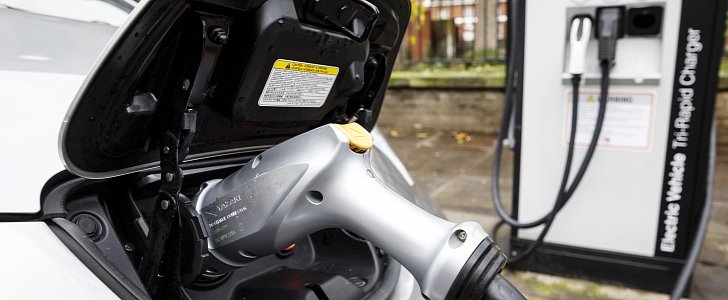Beginning next month, customers in Germany interested in buying plug-in cars will benefit from incentives offered by the state.
German political leaders met up with automaker representatives and decided to split the bill, as the two will fund the $1.4 billion (€1.2 billion) project that will provide subsidies for those who buy an electric or plug-in hybrid vehicle.
All the plan needs to work is approval from Germany’s parliament, but nobody expects them to say no on this matter.
Customers who want to purchase purely electric vehicles will be eligible for an incentive of up to €4,000, a rough equivalent to $4,500. Meanwhile, those who buy a plug-in hybrid vehicle could receive up to €3,000, which is close to $3,400.
Germany is not only supporting the purchase process of these cars but also the ownership, as the country will build 15,000 recharging stations on a national level.
These charging sites will be built through a separate investment of $340 million (€300 million). The development of the infrastructure will take place between 2017 and 2020, so those stations will not pop up overnight.
According to Bloomberg, the program is set to start in May. Germany wants to mobilize its biggest manufacturing sector by revenue to build more electrified vehicles, while also stimulating the purchase of these products.
Naturally, you can be German and buy a plug-in car from the mentioned categories and still receive the subsidy for which you are qualified. Otherwise, Germany’s incentive strategy would have been discriminatory and would have been stopped by the European Union.
Germany has a vast carmarket, with over three million vehicles sold every year, but electric vehicles have not been that popular. According to statistics, around 30,000 electric vehicles have been registered in Germany. The country had an older plan whose aim was to bring one million electric vehicles registered and driving by the year 2020.
But as we get closer to the date, it is getting clear that they will not reach that objective too soon, as they would have to increase electric vehicle sales to one-twelfth of the total annual number. Instead of selling a couple of thousand EVs a year, Germany would have to sell 250,000 electric vehicles every year for the next four years to achieve its ambitious objective. We think they will not accomplish it.
All the plan needs to work is approval from Germany’s parliament, but nobody expects them to say no on this matter.
Customers who want to purchase purely electric vehicles will be eligible for an incentive of up to €4,000, a rough equivalent to $4,500. Meanwhile, those who buy a plug-in hybrid vehicle could receive up to €3,000, which is close to $3,400.
Germany is not only supporting the purchase process of these cars but also the ownership, as the country will build 15,000 recharging stations on a national level.
These charging sites will be built through a separate investment of $340 million (€300 million). The development of the infrastructure will take place between 2017 and 2020, so those stations will not pop up overnight.
According to Bloomberg, the program is set to start in May. Germany wants to mobilize its biggest manufacturing sector by revenue to build more electrified vehicles, while also stimulating the purchase of these products.
Naturally, you can be German and buy a plug-in car from the mentioned categories and still receive the subsidy for which you are qualified. Otherwise, Germany’s incentive strategy would have been discriminatory and would have been stopped by the European Union.
Germany has a vast carmarket, with over three million vehicles sold every year, but electric vehicles have not been that popular. According to statistics, around 30,000 electric vehicles have been registered in Germany. The country had an older plan whose aim was to bring one million electric vehicles registered and driving by the year 2020.
But as we get closer to the date, it is getting clear that they will not reach that objective too soon, as they would have to increase electric vehicle sales to one-twelfth of the total annual number. Instead of selling a couple of thousand EVs a year, Germany would have to sell 250,000 electric vehicles every year for the next four years to achieve its ambitious objective. We think they will not accomplish it.

